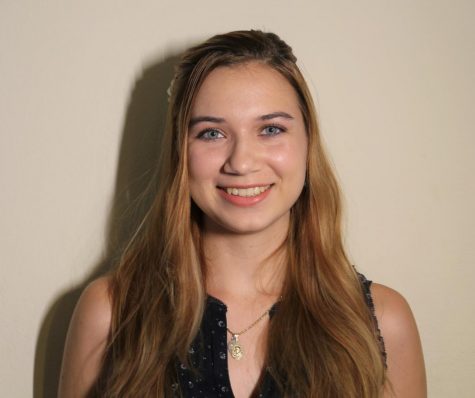The Uphill Battle for Camps This Summer
Summer programs contemplate the risks of opening up during the coronavirus
Two months ago, I was still thinking about what hiking boots and swimming suit I should pack in my hiking backpack. I had spent hours talking over the phone with my scout friends planning trivial matters like who would carry the tent poles and what snacks to include in our week-long supply of midnight treats. It seemed everything aligned for a memorable week off California’s coast on Catalina Island for our Venture Scout camp in the first week of July, and my friends and I were ecstatic to spend time together outdoors, seeking solace far away from the bustling freeways and city lights of Los Angeles. But just like so many others, we quickly found ourselves locked away in the same four corners we were trying to escape, with a highly unlikely chance of being able to kick up the dirt trails this summer as we imagined.
My example does not stray far from most of the 14 million children and adults who find themselves unable to attend a camp in the U.S. this year due to the pandemic. With them are over 1.5 million camp staff members, many of which have been furloughed or forced to take extra precautionary steps to allow for an atypical opening of the usually busy summer camp season.
It’s no secret that adhering to social-distancing standards in a camp, especially an overnight camp where children sleep, eat and play in close circles, is virtually out of the question and peer-to-peer isolation defeats the idea of the camp experience. With delayed reopening phases in many states, this means major losses to more than 12,000 summer camps in the 18 billion dollar industry according to the American Camp Association’s 2015 Business Operations Report (ACA).
The ACA is the ‘largest association serving the organized camp industry’ and has consistently strived to adhere to national standards for health and safety for accredited camps. To help guide some camps towards reopening, together with the YMCA of the USA it has released a field guide for summer camps on how to safely operate during the pandemic offering detailed guidelines and sharing best practices for a variety of common camp activities.
The 82-page document is far more comprehensive than the CDC’s single page requirements and states that camps are only allowed to reopen if local and state officials permit it and “their geographical locations have met gating criteria for Phase 2 and 3 in the published White House/CDC Guidelines for Opening Up America Again.”
The association’s guide emphasizes a plan where all participants and staff are screened and observed daily for symptoms along with heightened measures to disinfect high-touch surfaces. Aside from that, participants would be separated into smaller groups called ‘households’ for activities, dining, and living which allows for close monitoring and tracking of someone’s contacts in case they are infected. The camp would also have to implement strict policies to avoid big groupings further eliminating field trips and sports tournaments and include more non-contact activities like making crafts.
Nevertheless, the additional safety measures also mean added costs, and with the smaller groups, less profit per session. Following the guidelines would require obvious expenses like establishing frequent hand sanitizing stations and mask availability to all participants. Aside from that the camp may have to hire more staff to clean surfaces and purchase more materials for individual participants so they do not have to share, all expenditures that at the time many camps cannot afford.
Another challenge is the growing inability of American families to afford to send their children to camp due to the nation’s economic state. Parents spend around $1000 per child for Summer childcare according to a survey by Bankrate in 2019, which for many parents is an expense they can no longer afford. And yet other parents are not psychologically prepared to risk sending their child away on an airplane or dormitories not to mention sleepaway camps.
Furthermore, it isn’t just private organizations that have suffered a loss of attendance and canceled programs but public schools as well. Many parents rely on summer programs at schools for assistance in child care or for intellectual enrichment.
Early childhood development centers often employ 12-month teachers to help with camps and universities are known to host a plethora of internships and research opportunities in various disciplines over the summer as well. Athletes are particularly impacted as sports preparations and training are crucial year-round with summer providing a break from academic duties.
So why do summer camps matter anyway? For many, the idea of a summer camp is tarnished by stereotypes represented in movies revolving around disgusting camp food, bug bites, and repetitive campfire songs. In reality, these getaways encompass all types of unique interests and experiences, with camps for academics, sports, church, adventure, and art.
As someone who has participated in scout camps since age six, I know personally that these experiences reinforce independence and empowerment as well as build lasting memories that only broaden one’s talents. Summer camps also allow children and adults to hone their technical and social skills and foster connections and friendships. The ability to get away from home has a positive impact on the emotional strength of young people and increases self-esteem at a crucial point in their lives.
Some camps have opted for online alternatives to continue providing usual participants with a connection to peers and socially-distant activities. However, as camps are being left to make the decision on whether to open up this summer, others are saving up and already preparing for next year. For many, as well as myself, the prospect of having their camp experience reduced to indoor activities in small groups is enough to keep them waiting another year for the privileges associated with a camp outdoors.
Victoria Bochniak can be reached at [email protected].

